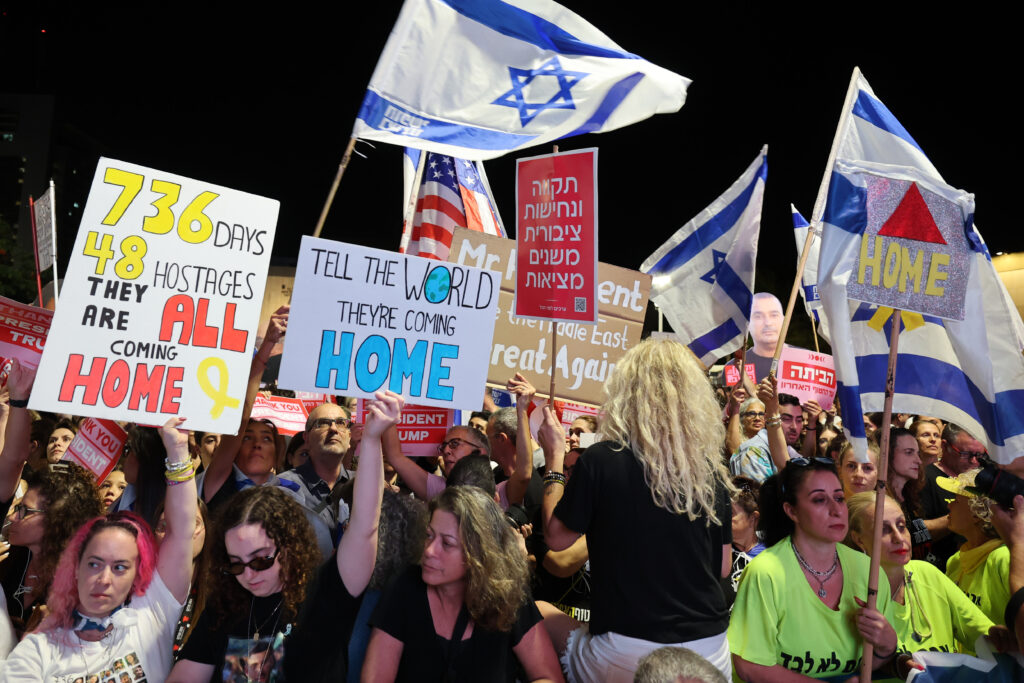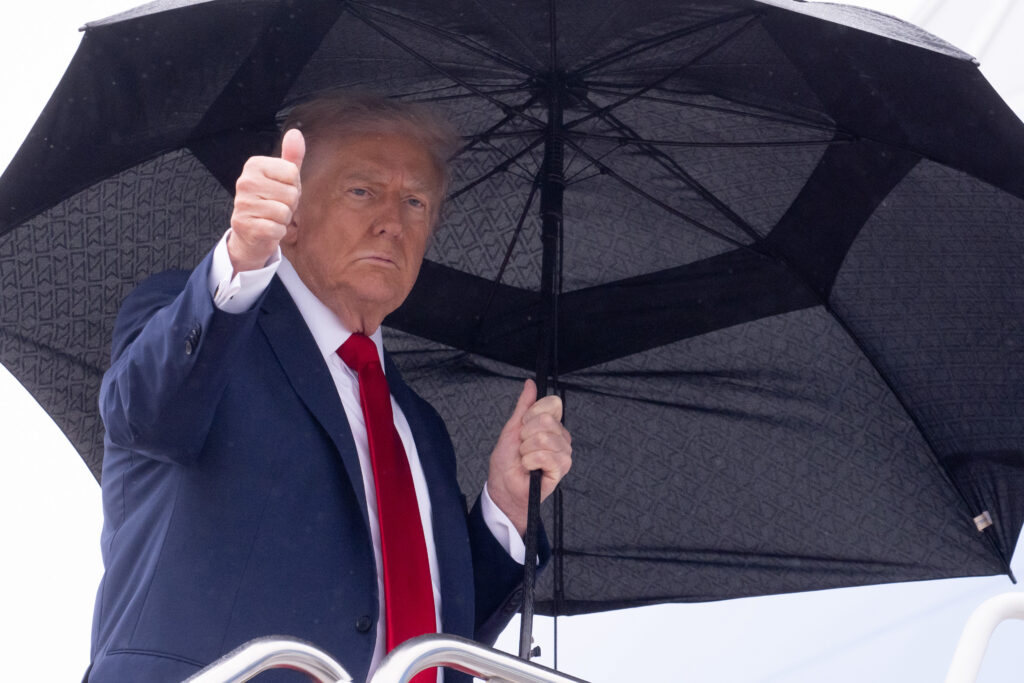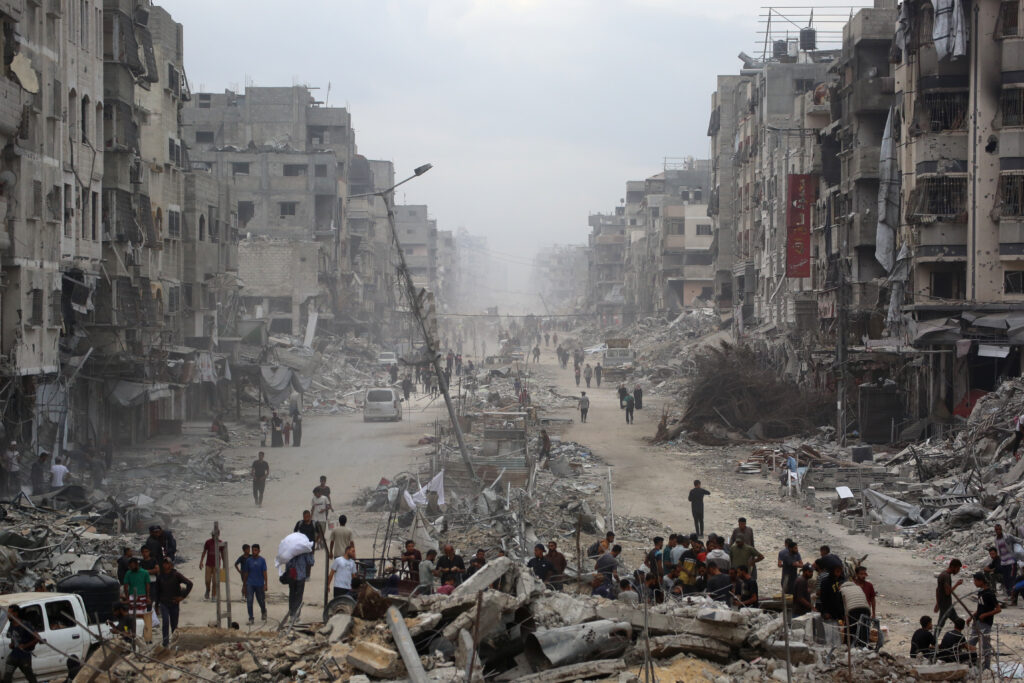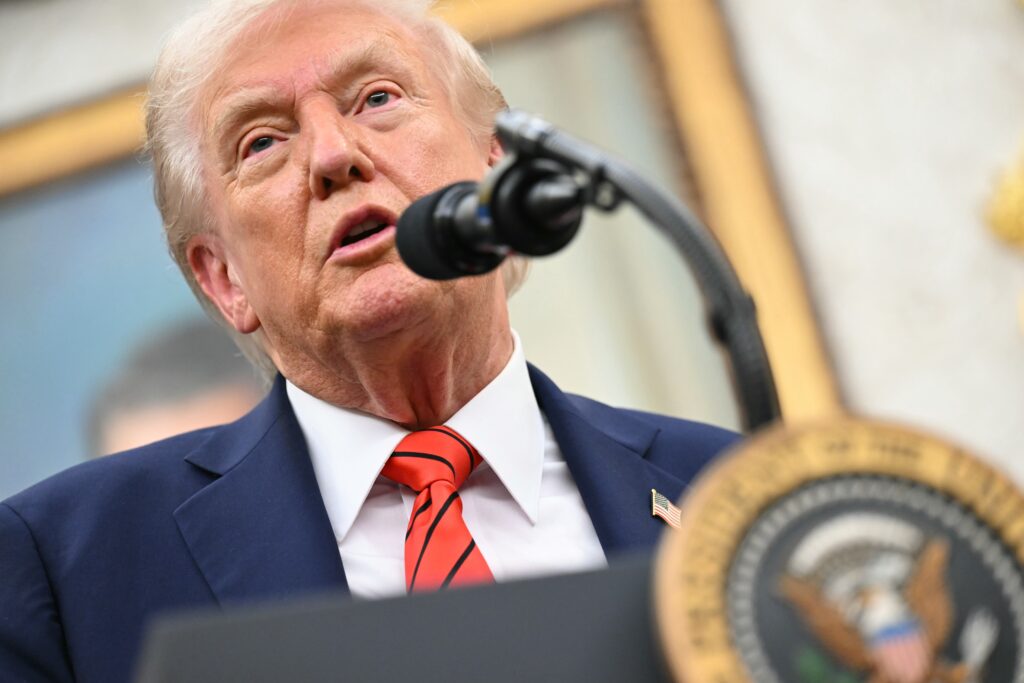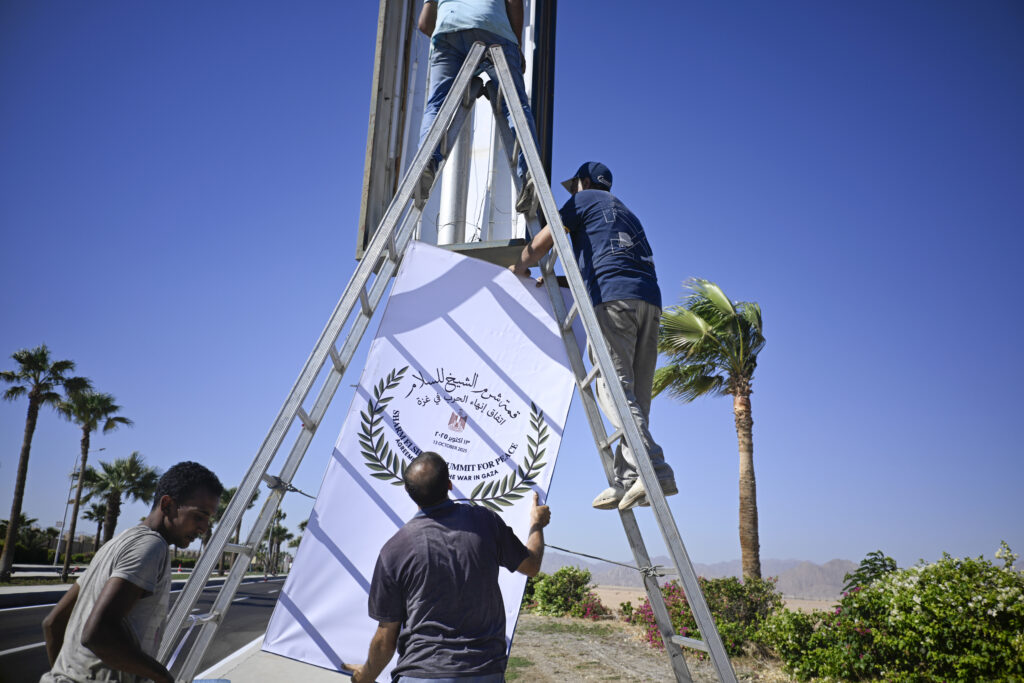Hamas and Israel set for hostage and prisoner exchanges
Hamas was set to release all surviving hostages on Monday in exchange for Palestinian prisoners held by Israel, as US President Donald Trump headed to the region for a peace summit having declared the war “over”.Trump’s lightning visit to Israel and Egypt aims to celebrate his role in brokering last week’s ceasefire and hostage release deal — but comes at a precarious time as Israel and Hamas negotiate what comes next.Under the US president’s proposed roadmap, once the Palestinian militants have handed over the surviving hostages, Israel will begin releasing around 2,000 detainees in exchange.Israel expects all 20 living hostages to be released to the Red Cross “early Monday morning”, according to a spokesperson for Prime Minister Benjamin Netanyahu’s office.Speaking to reporters on Air Force One at the start of the “very special” visit, Trump brushed off concerns about whether the ceasefire would endure.”I think it’s going to hold. I think people are tired of it. It’s been centuries,” he said of the fighting. “The war is over. Okay? You understand that?” the US president added.In Israel, Trump is due to meet the families of hostages seized by Hamas in the deadly cross-border attack two years ago that sparked the war, before addressing the Israeli parliament in Jerusalem.His trip is partly a victory lap over the Gaza deal he helped broker with a 20-point peace plan announced in late September.”Everybody’s very excited about this moment in time,” Trump said earlier as he prepared to board the plane at Joint Base Andrews near Washington.Key US officials travelling with him included Secretary of State Marco Rubio, Defense Secretary Pete Hegseth, CIA chief John Ratcliffe and top military officer Dan Caine.- Final details -Negotiators were still wrangling late Sunday over the final arrangements for the exchanges, with two Hamas sources telling AFP the group was insisting that Israel include seven senior Palestinian leaders on the list of those to be released.Israel has previously rejected at least one of those names.The sources said the group and its allies had nevertheless “completed all preparations” for handing over to Israel all the living hostages.Israel does not expect all of the dead hostages to be returned on Monday.Under the plan, Hamas is to release all the remaining 47 hostages — living and deceased — who were abducted on October 7, 2023, during its attack on Israel that left 1,219 people dead, most of them civilians.Hamas is also expected to hand over the remains of a soldier killed in 2014 during a previous Gaza war. Among the Palestinian prisoners to be released, 250 are security detainees, including many convicted of killing Israelis, while about 1,700 were detained by the Israeli army in Gaza during the war.- Peace summit -After visiting Israel, Trump will head to Egypt where he and President Abdel Fattah al-Sisi will co-host a summit of more than 20 world leaders to back his plan to end the Gaza war and promote Middle East peace.Trump will be looking to resolve some of the huge uncertainty around the next phases of the peace plan — including Hamas’s refusal to disarm and Israel’s failure to pledge a full withdrawal from the devastated territory.Trump insisted he had “guarantees” from both sides and other key regional players about the initial phase of the deal, and the future stages.”I don’t think they’re going to want to disappoint me,” he said.Trump also said he would be “proud” to visit Gaza itself, but did not say when such a difficult security challenge would be possible.A new governing body for devastated Gaza — which Trump himself would head under his own plan — would be established “very quickly,” he added.Under the plan, as Israel conducts a partial withdrawal from Gaza, it will be replaced by a multi-national force coordinated by a US-led command centre in Israel.Israel’s campaign in Gaza has killed at least 67,806 people, according to figures from the health ministry in the Hamas-run territory that the United Nations considers credible.The data does not distinguish between civilians and combatants but indicates that more than half of the dead are women and children.
